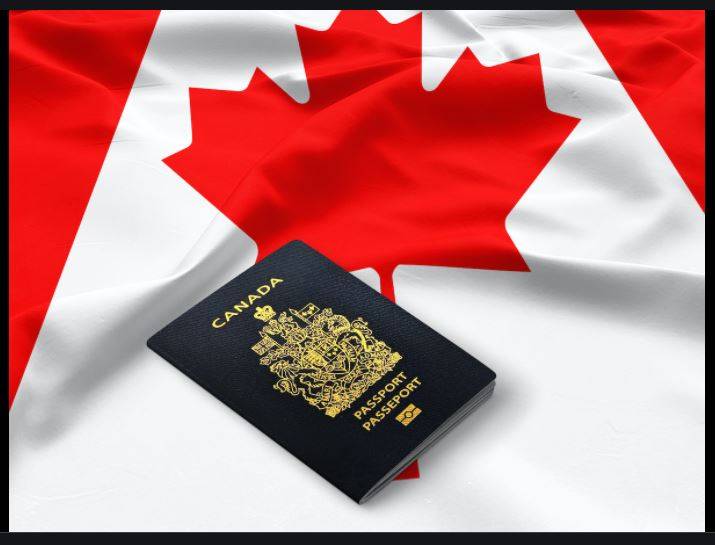Canada Family and Spousal Sponsorship Visa: All you need to know

Canada is ideal for raising a family and enjoying good living standards and excellent quality of life. The sponsorship visas stand out from Canada’s immigration program. It helps permanent residents and citizens sponsor qualifying family members, such as their spouses, parents, grandparents, and dependent children to get permanent residency in Canada. In this post, everything you need to know about sponsorship visas will be highlighted.
What is a sponsorship visa in Canada?
Many people consider Canada to be one of the best and most beautiful countries globally, and it is seen as a haven for individuals looking for a fresh start and greener pastures. It is also one of the world’s most peaceful nations today. Thousands of immigrants relocate to Canada through various immigration schemes, including sponsorship from close relatives, family members, partners, and even establishments. However, It is not easy to find a sponsor in Canada because only a few people who are permanent residents and citizens residents are eligible to sponsor you. Canada recognises the value of family, which is why family sponsorship was established. According to Canada’s family sponsorship requirements, you must notify immigration authorities if you have a spouse, partner, or kid at the time you become a permanent resident. You won’t be able to sponsor them later if you don’t, and you can have issues with your own immigration status in Canada.
What are the requirements to become a Sponsor?
To become a sponsor in Canada, below are the requirements:
- You must be a Canadian citizen or a permanent resident who currently resides in the country.
- Make sure you have enough funds to sponsor a family or partner. It’s common to be asked for proof of financial resources, so be prepared to present one.
- You must be at least 18 years and above
- You cannot be a sponsor if you were previously sponsored to come to Canada.
- If you have previously sponsored a family member and have failed to meet the sponsoring requirements.
- You must put a written arrangement in place to financially support the relative or partner you desire to bring to Canada. Depending on your relationship with the person you’re sponsoring, the agreement could last up to 20 years.
- . Show proof that they have never received community or social aid unless they are incapacitated.
- You cannot be a sponsor if you have previously or presently been convicted of a serious offense in Canada.
- You cannot sponsor more than one person to Canada. So if you have sponsored a relative before or a family member, you will not be eligible again.
- If you have received an immigration loan and you never paid it back, or you made a late payment, you may not be allowed to sponsor again.
Who can I sponsor to come to Canada?
Spouse, Common-law, or Conjugal Partner: Canadian spousal sponsorship is how a Canadian citizen or permanent resident can sponsor their partner to come to Canada and live permanently. Please take advantage of an extended 12-month processing period by sponsoring your spouse or common-law partner for Canadian permanent residency, whether they live in Canada with a valid, temporary visa or live abroad. Applicants who are currently residents in Canada may be eligible for an open work visa, which would allow couples to reduce some of their financial difficulties. Sponsored people can work in Canada while their sponsorship application is being reviewed with a spousal open work permit. Because Canada recognizes common-law marriages, if you and your partner have lived together for at least one year but are not married, you may be eligible for spousal sponsorship.

Child or Other Dependent Sponsorship: When applying for permanent residency in Canada, you can include your children as accompanying dependents. If you prefer not to have them, or if you are otherwise unable to do so, they may be able to join you in Canada at a later time. Canada’s child sponsorship program permits unmarried Canadian citizens and permanent residents to sponsor their biological or adopted children under 22 for permanent residence if they are single and do not have children of their own. If a child under the age of 22 has a medical or mental disability that prohibits them from supporting themselves, they may be deemed dependent.
Parents or Grandparents Sponsorship: parents and grandparents of permanent residents and Canadian citizens can benefit from Canada’s assistance with family reunion through the parent and grandparent sponsorship scheme. In order to sponsor a parent or grandparent, citizens and permanent residents must demonstrate that they can financially support their families by earning the Minimum Requisite Income (MNI) for their family size. They must also agree to provide financial help to their sponsored family members if needed. For sponsors who are unable to continuously support their parents or grandparents, a Super Visa, which is long-term and multiple-entry for parents and grandparents of Canadian citizens and permanent residents, may be available.
Orphaned brother, sister, nephew, niece, or grandchild: Canadian citizens or Permanent Residents may be able to sponsor their orphaned sibling, sister, nephew, niece, or grandchild to come to Canada under certain circumstances. To support an orphaned relative, they must be unmarried, under 18, and have blood or adoption connected to you.
What are the steps to sponsor a loved one to Canada?
- After you’ve met all of the requirements and presented all of the appropriate documentation, the next step is to apply to sponsor your loved one to come to Canada.
- Request a sponsorship form from the Immigration, Refugees, and Citizenship Canada (IRCC) website or office.
- Complete the form to the best of your ability and offer accurate information.
- Pay all application fees, including processing fees, expenses for obtaining permanent residency, and fees for biometrics. You can pay through the IRCC’s website or in person.
- Done? Return the completed form to IRCC and wait for a response.

Source: propertyguides.com
How does Employment Sponsorship in Canada work?
If you do not have any family in Canada, this is another fantastic approach to receiving sponsorship. Now, this is how it works. When Canadian employers and business owners are short on workers, and there are no Canadian citizens or permanent residents who can fill the position, they have the right to hire foreigners to fill the position. However, the difficult thing here is to find a Canadian employer willing to recruit you. Keep reading to learn how to get a company to sponsor you.
How do I find an employer to sponsor me to Canada?
You may not realise it, but several Canadian firms are looking for international labour in your home country. All you have to do is search in the proper direction. Looking for the Canadian embassy in your own country and going there to see if any companies are actively hiring international workers or if Canadian companies in your location are conducting any job fairs is a good place to start.
Occasionally, some universities in your home country may host career fairs with Canadian companies. As a result, see if any of these courses are offered as part of your degree program.
Some companies and programs allow Canadian employers to hire newcomers or foreign workers in Canada. As a result, you should apply for these programs in order to connect with your potential Canadian employer, who will almost certainly sponsor you.
Programs that may connect you with a Canadian employee
- Program for Skilled Immigrants’ Career Pathways
- Program for Federal Internships for Newcomers
- Fair for Immigrants in Canada

Source: canadim.com
Companies that Connect You With Potential Employers
- Hire Immigrants
- Immigrant Employment Council of BC
- MOSAIC Employment Services: Career & Job Fair
- S.U.C.C.E.S.S.
- MentorConnect
- Canada’s Best Diversity Employers
- You may also check here for sponsorship jobs in Canada
How much money do I need to sponsor a family member in Canada?
The amount of money you will need depends on the type of sponsorship and how many family members you are already caring for. As stated earlier, you will have to sign a contract promising to provide for the needs of the family member you are sponsoring.
In order to be qualified to sponsor, several sponsorship alternatives will additionally require you to verify that you have a minimum income. For example, this is the case with the Parent and Grandparent Sponsorship Program. You must have earned more than the Minimum Necessary Income (MNI) stipulated by Immigration, Refugees, and Citizenship Canada (IRCC) for each of the past three taxation years prior to the date you submit your application.
For how long am I financially responsible for the family member I sponsor?
The time you will be financially responsible for the person you are sponsoring begins on the day they become a permanent resident and varies based on the sort of family member:
- Spouse, common-law partner, or conjugal partner – 3 years
- Dependent child – 10 years, or until age 25, whichever comes first
- Dependent child 22 years of age or older – 3 years
- Parent or grandparent – 20 years
- Other relatives – 10 years

Source: the.ismaili
What if the sponsor does not have the requisite financial ability?
If the sponsor does not have the required financial capability, the sponsor’s spouse, common-law partner, or conjugal partner may sign the undertaking as a co-signer. In this situation, their combined financial capabilities will be evaluated, and the co-signer will be held equally responsible in the event of default. If the sponsor’s and co-combined signer’s financial capacities do not reach the minimal requirements, the Family Sponsorship Application will be denied. It is important that you are financially capable before looking to sponsor a person.
How can I show IRCC evidence of my relationship with my spouse?
The evidence you provide to Immigration, Refugees and Citizenship Canada (IRCC) should include the following:
- A completed version of the IMM 5532 questionnaire which is called the “Relationship Information and Sponsorship Evaluation” (it is included in your application package)
- A marriage certificate and proof that the marriage has been registered with a government authority
- Proof of divorce if a spouse was previously married
- If the couple has children in common, long-form birth certificates or adoption records containing the names of both parents
- Wedding invitations and photos
- Couples must additionally submit papers from at least two of the following. If they are unable to provide at least two of the following sets of documents, they must provide a written explanation:
- Evidence of joint ownership of residential property
- Rental agreement showing the couple are occupants of the property
- Evidence of joint utility accounts (such as electricity, gas, telephone, internet), joint credit cards or bank accounts
- Car insurance showing the couple has both been declared to the insurance company as residents of the same address
- Government-issued identification showing the same address (such as a driver’s license)
- Other documents issued to the couple show they have the same address (such as cellphone bills, pay stubs, financial statements, tax records, insurance policies, etc).

Source: cicnews.com
Can a sponsored spouse work or study in Canada?
Yes, as long as they have a work permit, the sponsored individual can work. Sponsored persons must maintain their legal status in Canada while spousal or common-law partner applications are being processed (visitor, student, or worker). Your sponsored spouse or partner may apply for an open work permit and must get authorisation before beginning work. The processing time for this application is between 4 and 5 months. An open work permit is unrelated to the employer or the job, and it permits the bearer to work for nearly any employer in Canada without first acquiring a confirmed job offer.
Medical examination for Canadian sponsorship
Applicants for permanent residency in Canada must undergo a medical examination to guarantee they are not medically inadmissible. Your medical exam is not required to be submitted with your application. IRCC will send you details on how to conduct your medical exam when you submit your sponsorship application. The medical exam must be performed by a doctor on the IRCC’s panel of physicians.
How do I check the status of my sponsorship application?
You can check the status of your application for spousal, common-law, or dependent child sponsorship using Canada’s Permanent Residence Application Tracker portal. If you’re sponsoring a family member, how you monitor the status of your application will depend on whether you submitted it online or by mail. Learn more about how to check the status of your sponsorship application using IRCC’s online tool.

Is there a deadline for Canadian sponsorship applications?
Citizens and permanent residents of Canada who are eligible to sponsor their spouse or children may do so at any time. However, those who wish to sponsor their parents or grandparents must be invited to do so and must submit an application before the deadline.
There you have it. Everything you need to know about Canada Sponsorship Visa. Meanwhile, do well to ask questions regarding this topic if they have not been answered in the post. We look forward to hearing from you.



Responses